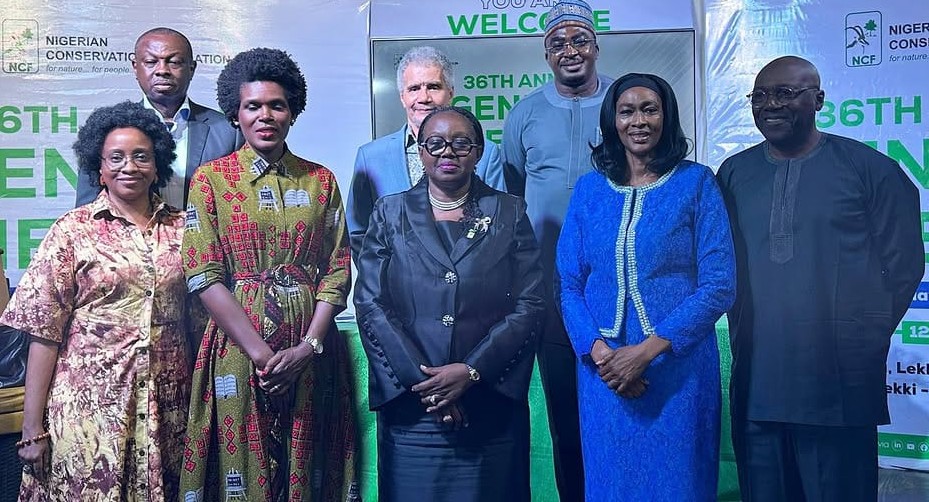The Nigerian Conservation Foundation (NCF) has embarked on a strategic capacity-building programme that empowered over 11,000 beneficiaries, facilitated the creation of 7,500 green jobs, and established 42 new conservation clubs.
The group also helped communities transition from dependency to resilience, forged stronger pathways to sustainable development, and expanded the use of technology for conservation monitoring. It also reinforced monitoring and evaluation frameworks and increased advocacy for stronger environmental policy reform.
President, NCF Board of Trustees, Philip Asiodu, who spoke at the organisation’s 36th yearly general meeting, reaffirmed its unwavering commitment to building Nigeria where people prosper, and living in harmony with nature.
He said: “We faced a rapidly changing environment from the impacts of climate change, habitat degradation, and biodiversity loss to the economic and societal pressures that test our resilience. Yet, amidst these challenges, NCF stood firm, driven by a clear vision and a dedicated community of supporters, partners, staff, and volunteers.”
Through the Green Recovery Nigeria programme, we continued to drive national reforestation efforts and restore degraded landscapes. In 2024, we planted 184,000 trees across various ecosystems, reaffirmed the goal of restoring Nigeria’s forest cover to 25 per cent by 2047.
“Beyond planting trees, we also paid attention to the needs of the host communities on a per-need basis. As we carried out restoration projects, we provided support to the local communities. In some places, it was the provision of water, in others, livelihood support to help improve the living conditions of these communities.
Under species conservation, Asiodu revealed that the organisation expanded conservation efforts to protect Nigeria’s most threatened species, from supporting Cross River gorilla research scholarships at the University of Calabar down south to the protection of wild cats through the Kainji Lake National Park project up north.
The Chairman, National Executive Council, Hon. Justice R.I.B. Adebiyi, said NCF supported the development of the National Elephant Action Plan, continued work on safeguarding Cross River gorillas, lions, leopards, sea turtles, and other critical species, and implemented community-led initiatives that stem biodiversity loss in key habitats across the country.
According to her, NCF demonstrates commitment to inspiring environment stewardship among young Nigerians through various engagements, built stronger partnerships with institutions such as Nnamdi Azikiwe University, Tai Solarin University of Education, Chukwuemeka Odumegwu Ojukwu University (COOU) and the Federal University of Agriculture, Abeokuta.
“The path of conservation demands collective action. Let us continue to work together to build a future where development and conservation go hand in hand, ensuring that the natural wealth of our communities, states, country, and the world is preserved, restored, and celebrated,” she added.
The Director General, Dr Joseph Onoja, recognised the persistent threats of illegal logging, habitat degradation, limited conservation financing, and the intensifying effects of climate change.
Despite the challenge, he said NCF expanded use of technology for conservation monitoring, reinforced monitoring and evaluation frameworks, and increased advocacy for stronger environmental policy reform at the state and national levels.
Onoja announced plans to expand landscape restoration and forest cover across the country, deepen species conservation and habitat protection, scale climate resilience and adaptation strategies, empower communities and green enterprises, and invest in the next generation of conservation leaders.






